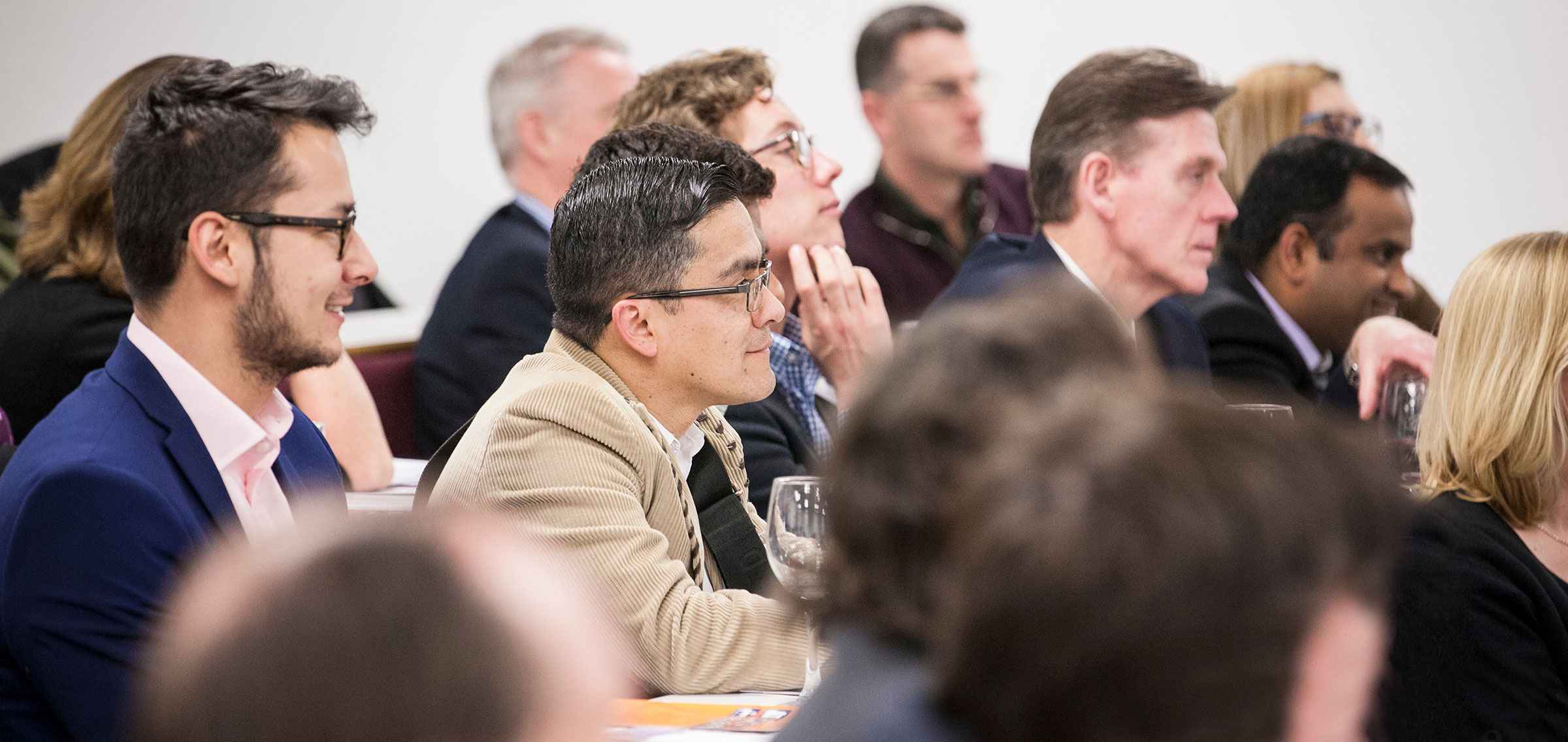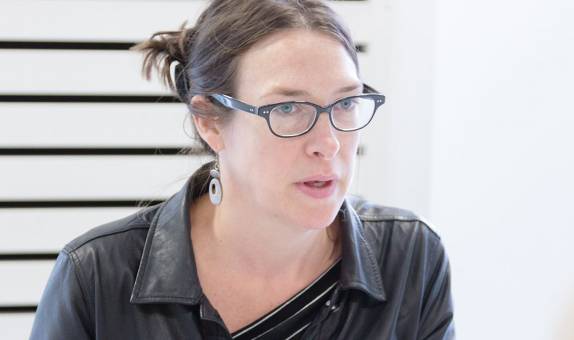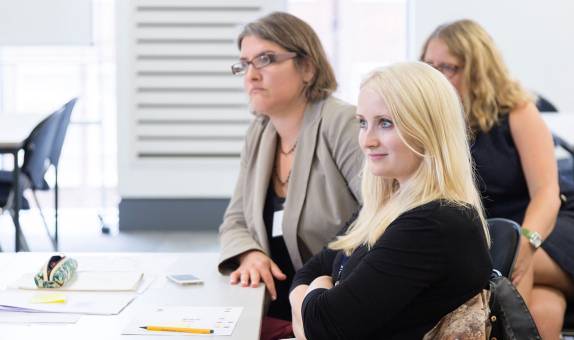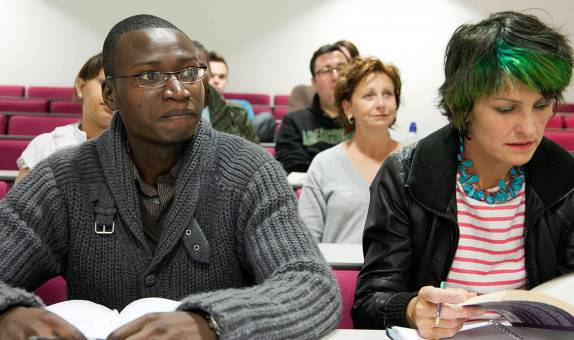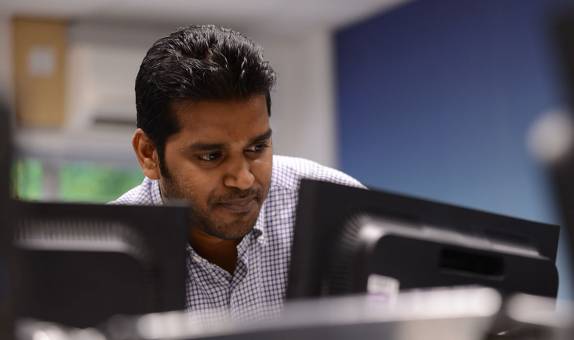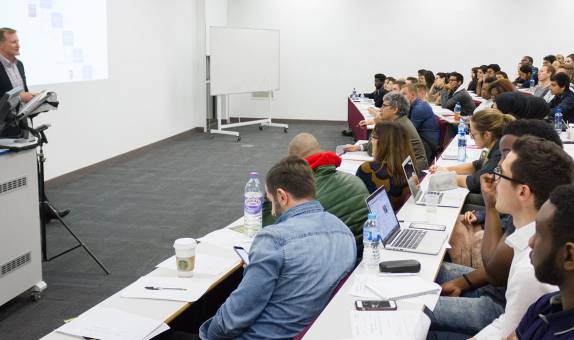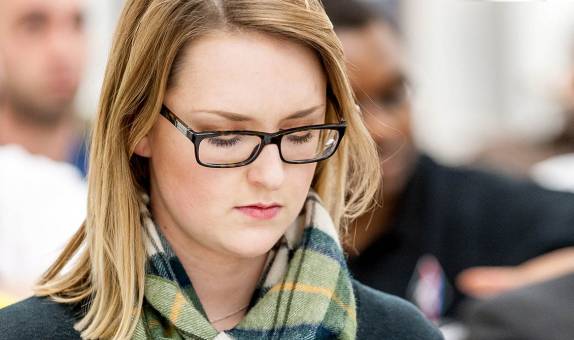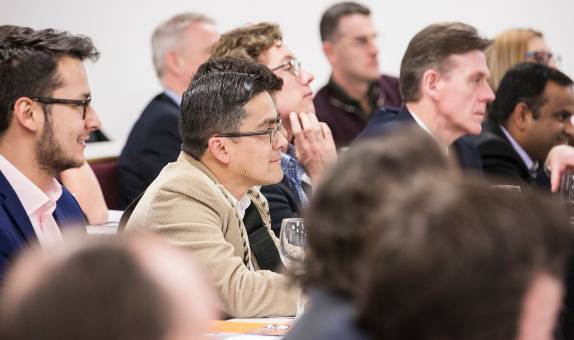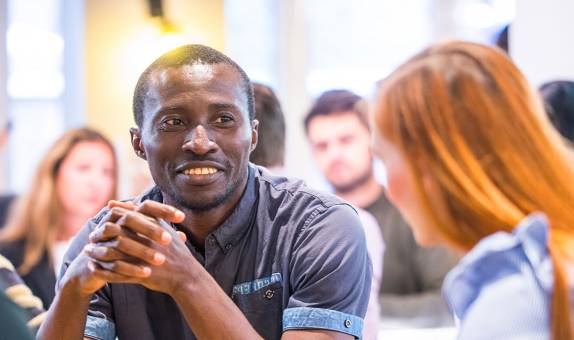-
![Small Business Research Centre]()
![Small Business Research Centre]()
![Small Business Research Centre]() Small Business Research Centre
Small Business Research Centre
SBRC completed projects
Recently-completed research projects
Dates refer to the year when the project was completed. All these projects have associated publications.
2020
Leading to Grow Programme
The Leading to Grow Programme was funded by the Department for Business, Energy & Industrial Strategy, and Innovate UK. Led by the SBRC, Kingston Business School, along with 14 other Chartered Association of Business Schools across the UK, investigated the influence of digital education on the growth of microbusinesses. The project was led by Audley Genus and conducted by Bahare Afrahi, Martha Mador, Sahar Mansoori and a team of entrepreneurs in residence. The programme helped small business owners adopt new technologies suited to their business goals, and develop the management capabilities they needed to implement the technologies. The research design employed a random controlled trial method, whereby one group of businesses received an intervention and a control group did not. Learn more about the Leading to Grow Programme.
Exploring the London freelance workforce
Freelancers are important contributors to the London economy. This report presents data drawn from official UK government sources to build a portrait of the capital's 400,000 freelancers with regard to gender, age and occupation. The project, led by Professor John Kitching, was commissioned by IPSE, the Association of Independent Professionals and the Self-Employed.
The Quality of New Forms of Self-Employment, OECD
This project, headed by Professor John Kitching, drew on secondary sources to investigate new forms of self-employment in developed economies. Specifically, the project aimed to: identify emerging forms of self-employment and their key characteristics; compare the quality of new forms of self-employment with the more 'traditional' models of full-time solo self-employment and employment; explore what types of policies and programmes aim to ensure that these new forms of self-employment are 'quality' labour market activities; and to provide some key messages for policy-makers.
Freelancing and Flexibility: How Freelancers Enable Organisations to Meet Their Labour Requirements, British Academy
Professor John Kitching and Dr Mara Iskandarova worked on a study that develops our understanding of the expanding UK freelance labour market by investigating working practices in two contrasting sectors – publishing and architecture. Prior research on freelancing has been limited and fragmented and has focused largely on worker characteristics. This study extended previous research by investigating the demand for freelancers' services and specifically the need for workforce flexibility.
The study investigated the nature, extent and drivers of end-user demand for freelancers, and the effect of using freelancers on organisational performance; and freelancers' responses to end-users' flexibility policies and the impact on working practices. Overall, the study developed our understanding of how end-users and workers jointly produce a dynamic and flexible freelance labour market and the challenges the parties face.
2019
European Network for Research, Good Practice and Innovation for Sustainable Energy (ENERGISE)
Funded under the EU Horizon 2020 programme (2016-2019), ENERGISE was an innovative pan-European research project, which aimed to achieve a greater scientific understanding of the social and cultural influences on energy consumption.
The project aimed to find solutions to deal with the challenges of decarbonising Europe's energy system by developing, testing, and assessing options for a bottom-up transformation of energy use in households and communities across Europe. This project used social practice theory to develop new strategies for reducing domestic energy consumption, identifying the role that SMEs can play in this.
The project involved multiple partners, and the SBRC team was led by Audley Genus, working with Marfuga Iskandarova and Tim Harries. Completed in December 2019, the SBRC research team contributed to developing the conceptual framework, establishing a database of sustainable energy consumption initiatives across the EU, and producing a report on the design of innovative energy living labs.
2018
EUROFOUND research project (2016-2018)
The Small Business Research Centre (SBRC) has completed a EUROFOUND research project (2016-2018) that investigated the internationalisation of manufacturing born globals and their global value chains. The project was led by David Smallbone, Robert Blackburn and Hang Do, working with six other European institutions (IKEI (Spain), Oxford Research (Sweden), Patenia (Netherlands), Praxis (Estonia) and VVA (Italy). This involved developing seven case studies of European born globals and their value chains, and 27 policy case studies on internationalisation across the EU, Japan, Australia and the USA. For further details and to download the report visit: Born globals and their value chains.
SME Internationalisation
This is a part of a large project funded by the ACCA, investigating SMEs barriers, needs and opportunities to internationalisation and small and medium-sized accounting practices (SMPs) across five countries including the UK, Malaysia, Singapore, Ireland and Nigeria. The SME internationalisation study was conducted by Dr Hang Do and Professor Robert Blackburn. It examined SME barriers and needs in the internationalisation process and the impact of e-commerce, global value chains and regional value chains and innovation on SME internationalisation performance.
Australian White Paper Small Business
This project was conducted by Professor Robert Blackburn and Dr Hang Do, in collaboration with Professor George Tanewski from Deakin University, Australia. This is part of a larger project led by the Institute of Public Accountants (IPA) and IPA Deakin University SME Research Partnership, looking at different aspects of SME internationalisation, barriers and opportunities and needs.
Future of Manufacturing: Born Globals and their International Value Chains
This is an on-going part of the EUROFOUND-funded project which started in 2016. This project aims to explore the international activities of 'born global enterprises' within their international value chains, and to develop policy pointers on the promotion of SME internationalisation. The project is led by Professor David Smallbone, Professor Robert Blackburn and Dr Hang Do, working in collaboration with the partner IKEI (Spain) and other five European partners to conduct the study within 10 EU countries, including Austria, Germany, Denmark, Sweden, Netherlands, Belgium, Finland, Estonia and Italy and Romania. The outputs of this project are embedded into a larger project of EUROFOUND and the European Commission intended to analyse the future of manufacturing activities in Europe.
Review of the Banking Complaints and Alternative Disputes Resolution (ADR) Landscape for UK's SMEs
This project, commissioned by UK Finance, involves the SBRC providing the evidence base for a Review led by Simon Walker, former Director General of the Institute of Directors. It focuses on the disputes between financial service providers and small businesses. The SBRC, led by Professor Blackburn, working with Dr Hang Do, Dr Eva Kasperova and Dr Chris Hand, conducted an independent analysis of a comprehensive range of evidence, including secondary and primary data sources. This will then be used to underpin evidence-based conclusions to support recommendations for the industry and government.
Assessment of inclusive entrepreneurship policies and programmes in the UK
This is part of a larger OECD funded project, assessing inclusive entrepreneurship policies supporting under-represented groups in the UK including women, seniors, young people, long term unemployed, immigrants and people with disabilities. This is an updated report for the analysis over the three-year period 2016–2018. This project is led by Professor Robert Blackburn, working with Dr Hang Do and Dr Eva Kasperova.
2017
Supporting the uptake of resilient repair in the recovery process
Tim Harries is the Co-Investigator on a research project commissioned by Defra to identify interventions that can facilitate the use of flood resilient materials in small businesses and homes after they have been flooded. Tim and Eva Kašperová will be interviewing the owners of flooded businesses and flood resilience professionals (insurers, loss adjusters, building contractors, surveyors) in order to understand the recovery process and identify barriers to resilient reinstatement.
Flood-related secondary disasters (Natech) in Thailand
With support from the Global Challenges Research Fund, Tim Harries and Eva Kašperová are lending their expertise in research and analysis to Thai researcher Dr Khanin Hutanuwatr from King Mongkut's Institute of Technology, Bangkok. Tim and Eva will help improve the outputs and impact of Dr Hutanuwatr's research into flood-related chemical disasters.
Educating for entrepreneurship: a national study in Spain
This project, commissioned by the Department of Theory and History of Education and Social Pedagogy at the University of Seville, was completed in 2017. Rosemary Athayde used her Attitudes to Enterprise Test to investigate students' entrepreneurial identity through the evaluation of two national programmes, assessing the current situation of entrepreneurship education for adolescents in Spain. The findings will guide decision-making for planning, development and evaluation of programmes aimed at promoting the entrepreneurial culture in Spanish compulsory education.
Critical incident analysis of the impact of the development and use of an online measure of 5-person attributes on a nascent business
This ongoing project, led by Elizabeth Chell, has stimulated the development of training programmes to address development of behavioural weaknesses; enabling an income stream and potential for scaling; badged on the Duke of York's digital platform.
European Network for Research, Good Practice and Innovation for Sustainable Energy (ENERGISE)
ENERGISE is a three-year long, Horizon 2020 funded project concerned with the challenges of decarbonising Europe's energy system. The project involves multiple partners and the SBRC's contribution is led by Audley Genus, working with Marfuga Iskandarova and Tim Harries. In 2017, the research team developed the conceptual framework, established a database of sustainable energy consumption initiatives across the EU, and produced a report on the design of the living labs which will feature in second and third years of the project.
SHAPE ENERGY Think Piece
This project funded under sub-contract from European Commission Shape Energy Platform involved Audley Genus writing a think piece entitled 'Everyday Imaginaries and Everyday Practices: Learning from 'ENERGISE' about the integration of social science with the EU Energy Union.
Knowledge Exchange for Entrepreneurship in Permaculture (KEEP)
KEEP is an ongoing project aiming to support members of the Permaculture Association (PA) who aspire to start and grow an ecologically-inspired business. The project is led by Audley Genus, working with Marfuga Iskandarova and Dr Chris Warburton-Brown, Research Director at the PA. In 2017, the project team started developing KEEP into an impact case study for the next REF exercise and sought funding for a follow-up study in relation to the development of a knowledge commons for permaculture-inspired entrepreneurs.
Community Energy in the UK
This project explores the activities that contribute to the creation of sustainable pathways to low carbon society, with a specific focus on entrepreneurs in the renewable energy sector. The project seeks to develop our understanding of the growth of low carbon, community renewable energy enterprises in the UK, the challenges they face, and how to improve existing practices and policy. The results are currently being written up in the form of academic papers and a book chapter.
The Quality of New Forms of Self-Employment
This OECD-funded project led by John Kitching aimed to identify emerging forms of self-employment and their key characteristics. The final background paper contributed to the Missing Entrepreneurs 2017 report published by the OECD.
Freelancing and Flexibility: How Freelancers Enable Organisations to Meet Their Labour Requirements
This British Academy-funded project, led by John Kitching working with Marfuga Iskandarova, sought to develop our understanding of the expanding UK freelance labour market. The research team completed fieldwork in 2017 and produced two conference papers to disseminate their findings.
The Future of Manufacturing: Born Globals and their International Value Chains
This flagship Eurofound funded project explores the international activities of 'born global enterprises' with an aim to develop policy for the promotion of SME internationalisation. The project is led by David Smallbone, working with Robert Blackburn and Hang Do, in collaboration with the partner IKEI (Spain). The study involves 10 EU countries and forms part of a larger project of the European Commission on the future of manufacturing activities in Europe.
SME Internationalisation in Turbulent Environment
This continuing project, funded by Kingston University's First Grant Scheme for early career researchers, investigates the SME internationalisation performance under turbulent environment. Led by Hang Do, the study explores entrepreneurial behaviour and planning in response to BREXIT, and the entrepreneurial orientation of internationalising SMEs exposed to market, political, economic and financial risks.
Assessment of Inclusive Entrepreneurship Policies and Programmes in the UK
This assessment of inclusive entrepreneurship policies supporting under-represented groups in the UK, including women, seniors, young people, long-term unemployed, immigrants and people with disabilities, provided an update for the analysis conducted in 2016. The project is led by Robert Blackburn, working with Hang Do and Eva Kašperová, and forms part of a larger OECD-funded project.
Guidance notes on policy strategies and objectives for the inclusive entrepreneurship online toolkit
The OECD and the European Commission are developing an online toolkit to support policy makers in designing inclusive entrepreneurship strategies. Eva Kašperová and Robert Blackburn have been developing research informed guidance notes to accompany the toolkit for key policy areas, including skills, access to finance and development of networks and partnerships, involving a review of policy documents and literature.
Women's Economic Empowerment through Entrepreneurship
This ongoing project led by David Smallbone addresses poverty reduction in Brazil. The aim is to empower women from low income and marginalised communities to participate in the labour market for paid employment or to equip them with the business and management skills to establish and develop a sustainable business. The project is funded by the British Council.
The effect of interruptions in business support
This project, commissioned by York, North Yorkshire & East Riding Enterprise Partnership, investigates how discontinuities in business support affect firm performance and growth potential, paying particular attention to scale-up businesses. The study, led by David Smallbone working with Robert Blackburn and Eva Kašperová, involves interviews with support programme managers and business owners affected by the schemes that came to an end.
The influence of a regional banking system on SMEs credit availability
We compared regional banking systems in the UK and Germany to gain insights into lending criteria and credit approval process for loans to SMEs, the processes followed and the main reasons for successful and failed applications. Robert Blackburn and Eva Kašperová collaborated on this project with the Institut für Mittelstandsforschung, Germany. The research involved interviews with managers of regional bank branches.
Business Incubators for inclusive entrepreneurs
David Smallbone led on this research project which is the latest in a series undertaken by SBRC staff on inclusive entrepreneurship. This particular project assessed business incubators and accelerators as policy tools for inclusive entrepreneurship. The approach used was mainly desk based although some primary data from Poland and Croatia were included.
2016
Exploring the UK Freelance Workforce in 2015
This research project used official UK government sources (Labour Force Survey, Business Population Estimates) to build a contemporary picture of the UK freelance workforce in quarter 2 of 2015. It provides quantitative data on the UK freelance workforce - including personal characteristics (gender, age, education and training) and work characteristics (occupation, industry, place of work, self-employment duration). The project, led by Professor John Kitching, was commissioned by the Association of Independent Professionals and the Self-Employed (IPSE).
The Knowledge Exchange for Entrepreneurship in Permaculture
The Knowledge Exchange for Entrepreneurship in Permaculture (KEEP) project aimed to support members of Permaculture Association (PA) who want to set up and grow businesses based on ecological principles. It also aimed to help PA to develop its own capabilities as an enterprise and innovation-supporting organisation.
The project team was led by Professor Audley Genus, who has secured a grant from the Institute for Small Business and Entrepreneurship (ISBE) Research and Knowledge Exchange (RAKE) initiative, sponsored by the Economic and Social Research Council among others, working with Dr Marfuga Iskandarova from the Small Business Research Centre and Dr Chris Warburton-Brown, Research Director at the PA.
The RAKE project was funded by the Institute of Small Business and Entrepreneurship (ISBE) until the end of 2016. However, the idea is to make the Kingston University/Permaculture Association collaboration an enduring one and we are seeking funding for further collaborative work.
Results from the project were presented at the 2016 ISBE conference. An online support website for practitioners has been created, including case studies of permaculture-inspired entrepreneurship. Visit the Permaculture Enterprise Guide.
2015
Job creation in born global enterprises
This project, undertaken by Hang Do and Robert Blackburn, investigated the motivations for, processes applied in and external support needs related to job creation in the UK by born global enterprises. The study also focused on analysing the characteristics of the created jobs and the effects of job creation on firm performance. The project, commissioned by the European Foundation for the Improvement of Living and Working Conditions (EUROFOUND), involved partners from five EU countries led by IKEI in Spain.
The legal needs of small businesses: an analysis of small businesses' experience of legal problems, capacity and attitudes
This research presented new empirical evidence on small businesses' experiences of legal problems and their strategies and actions in dealing with these problems. It drew upon a sample of over 10,000 small business respondents and included a longitudinal panel of over 1,000. The analysis first examined the use of legal services by small firms and how this has changed. Secondly, it modelled small firms' use of legal services to help identify the particular characteristics of firms in relation to the legal problems they face and how these are addressed. The research was commissioned by the Legal Services Board.
Tracking UK freelancer trends 1992–2014
Using secondary data from the Labour Force Survey, this project identified trends in UK freelance workforce numbers and in self-employment during the past 20 years. The data distinguished between those working freelance in main jobs and those working freelance in second jobs, with some other status in their main job.
Estimating the value of the UK contingent workforce, 2013
Using secondary data from the Labour Force Survey, this project estimated the value of the contingent workforce in the UK. Gross weekly earnings data were used to estimate the economic contribution of a diverse range of labour market groups, including those employees working on a temporary basis, employees working on zero hours contracts and the self-employed.
Study on the compliance by member States on the time needed to get licences and permits to take up and perform the specific activity of an enterprise as from beginning of 2014: UK National Fiche
This project formed part of a 37-country study covering EU and non-EU nations. The study investigated licensing and permit requirements for small firms in five sectors (hotel with a restaurant, plumber, wholesale & retail distribution, manufacturer of steel products, IT device manufacturer) and small firm experiences of the licensing regime. The fiche detailed policy objectives and action taken to meet commitments under the EU Services Directive, as well as small firms' experiences of seeking licences in terms of time taken and fees incurred.
Global university entrepreneurial spirit students' survey (GUESSS)
GUESSS is an international research project using a geographical and temporal comparison to investigate the entrepreneurial intention and activity of students. Thirty four countries participated in the sixth edition of GUESSS in 2013/2014. As an entrepreneurship research platform, GUESSS helps to identify antecedents and boundary conditions in the context of new venture creation and entrepreneurial careers in general and helps the participating countries to reflect on their entrepreneurial spirit with regard to specific basic founding conditions that drive students to become entrepreneurs.
The structure and development of the role of independent editors
There has been a rise in the number of independent editors in the economy. This project led by Dr Alison Baverstock (with Professor Robert Blackburn and Dr Marfuga Iskandarova), sought to explore the motivations, working patterns and experiences of independent editors. The study involved a survey of editors and interviews with those in the publishing industry. The research is of interest to analysts of micro enterprises and of use to those in the editorial and publishing industry.
Cost of the cumulative effects of compliance with EU Law for SMEs
We worked with the Centre for Strategy and Evaluation Services on this European Commission-funded study. Our role in the study was to provide a review of the research literature and methodological approaches prior to the rollout of the fieldwork stage. The study investigated the cumulative effects generated by compliance with EU legislation and its national implementation on SMEs in five sectors in nine countries.
2014
Business and network of enterprising women
This study looked at the impact of women entrepreneurship on the economic, social and cultural local development. It was part of the European project 'Business and network of enterprising women' (B.NEW) which aims to promote women entrepreneurship in French and English areas around the English Channel. The purpose of the study was to define an indicator to determine the impact of women entrepreneurship on the development and activity of French and English territories and to analyse support policies for women entrepreneurship.
The Russian Federation: A country review
This project involved Professor David Smallbone working as part of a team of four undertaking an OECD review of entrepreneurship and SME development in the Russian Federation. Although the aims and methodology were similar to the study of Mexico, the nature of the Russian context presented particular challenges for the researchers. Once again David's responsibility was for SME trends and performance and an assessment of where Russia has reached with respect to the framework conditions for entrepreneurship and SME development. OECD plan to publish the report in late 2014.
Entrepreneurship and Disability
This background paper undertook a review of the academic literature to examine whether entrepreneurship, defined as self-employment or business ownership, might offer a solution to disabled people's labour market disadvantage and social exclusion. Specifically, the paper asks: can entrepreneurship be used to move people with disabilities into employment? How often do people with disabilities start businesses? What types of businesses do they start? What barriers do people with disabilities face when starting a business? Are these barriers different to those faced by other entrepreneurs? Do different disabilities present different barriers to self-employment or business start-up (e.g. do people with physical disabilities face different barriers than those with mental disabilities)? What are the main policy tools available to help those with disabilities become more entrepreneurial? How can current policies be improved? The paper formed an important part of research background for the OECD policy brief, Entrepreneurship for People with Disabilities, published as part of the 'inclusive entrepreneurship' programme.
Sustaining self-employment for disadvantaged entrepreneurs
This project is a part of the Local Economic and Employment Development (LEED) Programme of the Organisation for Economic Cooperation and Development. This background study focuses on examining how national and regional governments in EU member states can improve the sustainability of disadvantaged entrepreneurs (e.g. women, youth, seniors, ethnic minorities, migrants). This research seeks to explain the concerns regarding the initiatives designed for the under-represented groups within the EU, and proposes solutions to enhance the sustainable environment for business creation and self-employment.
Kingston University Professor Robert Blackburn explains the work done to build entrepreneurship skills for youth entrepreneurship in this short YouTube video.
Evaluating the social value of regulatory reform
This report conducted a critical review of World Bank Group methods used to evaluate the social value (or benefits) of the regulatory reforms it supports in countries around the world and proposed changes in evaluation practice that might provide a better understanding of the range of impacts of reform. The report is an internal, unpublished report for the Bank.
Employment regulation, business behaviour and perceptions
Funded by BIS, this project has been undertaken in collaboration with TNS-BMBR, to combine two distinct qualitative studies. One investigates employer perceptions of the impact of employment regulation on employment practices, including the recruitment, management and removal of employees. The second examines employer experiences of managing maternity and paternity rights, and employee rights to request flexible working, and considers their likely responses to the proposed introduction of Flexible Parental Leave and the proposed changes to the Right to Request Flexible Working.
2013
UK Freelancer Data 2013
This study with Professional Contractors Group (PCG) study updated figures for UK freelancer numbers and selected sub-groups for 2013 using UK government data sources. This project was led by Dr John Kitching.
An Entrepreneurial Profile of Young Enterprise Participants for Young Enterprise UK
To supplement the Impact Report marking the 50th anniversary of Young Enterprise (YE) UK (2012), YE commissioned the SBRC to carry out a wider study of participation in YE programmes in the UK population. In 2012 the Global Entrepreneurship Monitor included two questions about participation in Young Enterprise, via telephone interviews with a representative sample of over 8,000 adults in the UK aged 18-64. The findings of the study were presented at the House of Commons Terrace on 24th October 2013 at an event hosted by Adam Afriyie, MP for Windsor and a YE alumnus. The project was led by Rosemary Athayde with assistance from Mohammed Shamsul Karim at the Economics and Strategy Group, Aston University.
Creation and development of jobs in care and support services
Employment in the health and social services sector in the EU had a 4.2 million net increase between 2000 and 2009, which accounts for more than a quarter of the total net employment growth. This study examined job creation, recruitment and retention of workers delivering community care services for adults with disabilities and/or chronic health problems, describing the situation in the sector and highlighting which measures have proven successful in developing both the numbers and quality of the care workforce. The study, commissioned by the European Foundation for the Improvement of Living and Working Conditions (EUROFOUND), involved 10 EU Member States including the UK.
The development of a measure of the innovative characteristics of young people
In 2007, NESTA commissioned Professor Chell and her team (Rosemary Athayde and Andrew Greenman) to carry out work to identify the innovative characteristics of young people and develop a measure of these characteristics. The conceptual basis of this work drew from the research for her book - Elizabeth Chell (2008) 'The Entrepreneurial Personality - a social construction', Routledge/The Psychology Press. The method has in part drawn on Rosemary's doctoral work.
Restructuring in SMEs
This project has been commissioned by the European Foundation for the Improvement of Living and Working Conditions (EUROFOUND). The aim of the study is to develop our understanding of the drivers, methods and consequences of restructuring in SMEs. The study will involve partners from 23 states across Europe. The project is led by Professor David Smallbone with Dr John Kitching and Eva Kasperova
2012
Exploring the Freelance Workforce, 2011
Building on and developing work with the Professional Contractors Group undertaken in 2008, this report presents data drawn from official UK government sources to develop a picture of the UK freelance workforce in 2011. Concluded in 2012, the report provides quantitative data on the UK freelance workforce and constituent sub-groups, their numbers, and a range of personal and work characteristics. This project was led by Dr John Kitching.
Mexico: A Country Review
This project involved Professor David Smallbone working as part of a team of four undertaking an OECD review of entrepreneurship and SME development in Mexico. Focusing particularly on the policy aspects, the study drew on a combination of secondary sources and primary data gathered during a study visit to Mexico. David's responsibility was for SME trends and performance and an assessment of where Mexico has reached with respect to the framework conditions for entrepreneurship and SME development. OECD expect to publish the report in 2013.
Young Enterprise: Impact 50 years of Young Enterprise
The most recent research into the impact of enterprise education on young people in the UK was carried out in 2012 by Rosemary Athayde and comprises a study of 50 years of the activities of the charity Young Enterprise UK. Using three online surveys, focus groups, face-to-face interviews and telephone interviews, the study demonstrates that participation in enterprise activities at secondary school or university has a positive impact on the likelihood of participants to start their own business.
Exporting to expand: the impact of exporting on British SMEs
As part of our on-going work with Barclays Bank and Fishburn-Hedges on exporting, this research focused on the experiences of SME exporters. Based on a survey of 1,500 enterprises, backed by examples, the research reported on the effects of exporting on the 'bottom line' as well as the challenges to further exporting. This research was led by Professor Robert Blackburn.
2011
The Value of Small Company Abbreviated Accounts
The study, supported by the Institute of Chartered Accountants of Scotland, investigated the value of small company abbreviated accounts to preparers and users. Using interview and survey data from small company preparers and from a wide variety of account users, the study explored directors' motivations for filing abbreviated accounts and user motivations in the context of other sources of information they could use instead. The study also examined the role played by accountants in the preparation and use of small company accounts.
The year ahead: a view from Britain's small businesses 2011
This repeat project, funded by Barclays Bank and undertaken by Robert Blackburn and Thomas Wainwright, examined how SMEs sector are performing during the recovery and the challenges they are experiencing. The study utilised a large scale survey across Britain (n=1000) and analysed the results by business size, region and sector. The research suggested that business confidence is decreasing within SMEs as a result of the slow economic recovery, but overall business confidence and growth expectations remain relatively high as firms continue to identify new opportunities.
Community-based participatory research: ethics and outcomes
Colleagues at Newcastle and Durham universities and a number of non-university participants investigated community perspectives and approaches to engaging communities in and with research on a project funded by the AHRC.
Newcastle Low Carbon Neighbourhoods
This project received external funding and other support rom New Deal for Communities (NDC), Beacon North East, Your Homes Newcastle and Newcastle City Council to investigate energy demand reduction and the potential for community energy-related innovation and enterprise in Newcastle upon Tyne, and to deepen our understanding of effective engagement between universities, residents, firms, voluntary organisations and local government relevant to energy and environment issues.
On the Road to Recovery: A Longitudinal Analysis of Small Firm Survival and Growth Strategies in Post Recessionary Conditions
This study, co-funded by the ISBE's Research and Knowledge Exchange Fund and Workspace Ltd, is concerned with the challenges and opportunities facing small firms as the economy moves out of recession, and the strategies used by owners and managers in response. The study builds on results of previous research undertaken by the SBRC focusing on the responses of small firms to economic downturn. This previous research was reported in a prize-winning paper by John Kitching, David Smallbone and Mirela Xheneti, at the ISBE Conference in 2009.
The 2009 study emphasised the variety of responses of small firms to recession but also their underlying resilience, which is associated with a high level of flexibility. One of the key unanswered questions emerging from the previous study concerns the implications of the different forms of adaptation undertaken by firms in 2008-9 for their medium- and longer-term performance prospects and the extent to which the strategies previously adopted to survive the recession affect the scope for management action once the economy begins to pick up.
Contact us
Director, Small Business Research Centre,
Kingston Business School
Email: [a.genus@kingston.ac.uk]
Research at Kingston Business School
- Postgraduate courses
- Undergraduate courses
- Research in the Faculty
- Schools in the Faculty
- Kingston Business School
- Kingston Business School accreditations
- Research at Kingston Business School
- Strategic Collaborative Partners
- Business services in Kingston Business School
- Kingston Business School alumni
- Staff at Kingston Business School
- Supporting students and small-to-medium enterprises (SMEs) through enterprise
- School of Law, Social and Behavioural Sciences
- Kingston Business School
- Support for undergraduate students
- Support for postgraduate students
Kingston University, Holmwood House, Grove Crescent, Kingston upon Thames KT1 2EE. Tel: +44 (0)20 8417 9000
- Postgraduate courses
- Undergraduate courses
- Research in the Faculty
- Schools in the Faculty
- Kingston Business School
- Kingston Business School accreditations
- Research at Kingston Business School
- Strategic Collaborative Partners
- Business services in Kingston Business School
- Kingston Business School alumni
- Staff at Kingston Business School
- Supporting students and small-to-medium enterprises (SMEs) through enterprise
- School of Law, Social and Behavioural Sciences
- Kingston Business School
- Support for undergraduate students
- Support for postgraduate students
